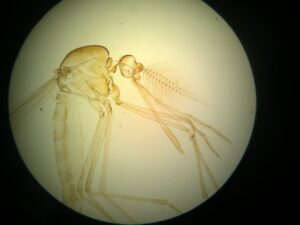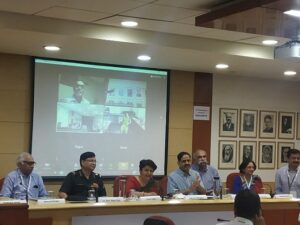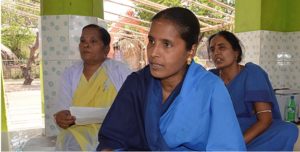World Health Organization Starts Distribution of the World’s First Malaria Vaccine

Neucrad Health India News Desk July 11, 2019
In a revolutionary effort, the World Health Organization (WHO) along with its partners, have launched an immunisation programme against malaria in the high-risk zones of Malawi. According to experts, this programme will soon get introduced in Ghana and Kenya as well. It is the first time health care professionals have started this pilot project against malaria for young children. They want to initiate the vaccination programme along with other preventive measures like the use of mosquito nets and insect repellents. WHO believes this project would bring relief to about 360,000 children every year after its successful introduction.
GlaxoSmithKline (GSK), the manufacturer of this unique malarial vaccine, recommends four doses for successful immunisation against the parasite-borne disease. During the clinical trials, the vaccination was effective in preventing the occurrence of malaria in four out of ten individuals. According to Thomas Churcher, a renowned malaria expert at the prestigious Imperial College London, “This is a bold thing to do, but it’s not a silver bullet. As long as using the vaccine doesn’t interfere with other efforts, like the urgent need for new insecticides, it is a good thing to do.”
GSK has made an excellent effort in the prevention of malaria by the development of this vaccine. Every year, this parasite-borne infection kills about 250,000 children only in Africa. Till now, there was no effective immunisation programme against this killer disease. People in tropical countries resorted to the use of mosquito nets and insect repellents as the only preventive measures. The introduction of this vaccine would prove beneficial to millions of people living in mosquito-prone tropical regions of the world like Malawi, Kenya, Ghana, India, Bangladesh, Thailand, and Indonesia. According to WHO, in 2017, 219 million people across 87 countries suffered from this deadly infection.
How is the malarial infection transmitted to human beings?
The causal organism for malaria is Plasmodium parasites. There are 5 Plasmodium species causing malaria; 2 of these species – P. falciparum and P. vivax poses the maximum threat. They get transmitted to human beings by the bites of female Anopheles mosquitoes, as the parasites complete part of their life-cycle within these insects. There are reports of 400 different species of Anopheles mosquito; out of which approximately 30 specials act as vectors for malaria. In most cases, these insects bite between dusk and dawn, when they become very active. The areas where mosquitoes have a longer life-span are prone to malaria. It is the reason 90 per cent of malaria cases get reported from African countries, as mosquitoes there have the longest life-cycle and a tendency to bite human beings.
Symptoms of malarial infection
There are two types of malaria diagnosed by doctors- uncomplicated and severe. In the case of uncomplicated malaria, patients experience high fever with a sensation of cold and shivering. It lasts for around six to ten hours and recurs every alternate day. Patients can also experience seizures during a high fever, which gets followed by sweating and extreme tiredness. Sometimes, fever remains accompanied by headaches and vomiting. If uncomplicated malaria remains undiagnosed and untreated, it can transform into severe form, which is a fatal condition. The symptoms for severe malaria is similar to the uncomplicated state; however, here patients become unconscious, experience multiple convulsions, show signs of anaemia due to abnormal internal bleeding, clinal jaundice, and vital organ dysfunction.
Treatment for Malaria
The treatment of malaria aims to eliminate the pathogen from the bloodstream. WHO recommends artemisinin-based combination therapy (ACT) for the treatment of uncomplicated malaria. Pharma companies derive this medicine from the Artemisia annua plant. Physicians prescribe ACT along with a partner medicine to rapidly reduce the Plasmodium parasites within the first three days of the occurrence of symptoms.
Neucrad Health India brings awareness to our society on health issues and updated information on research and development in biomedical science. Please share and help us to reaching more people.
Regards,
Dr. Biswarup Ghosh, Neuroscientist and Biochemist,
Founder of Neucrad Health








